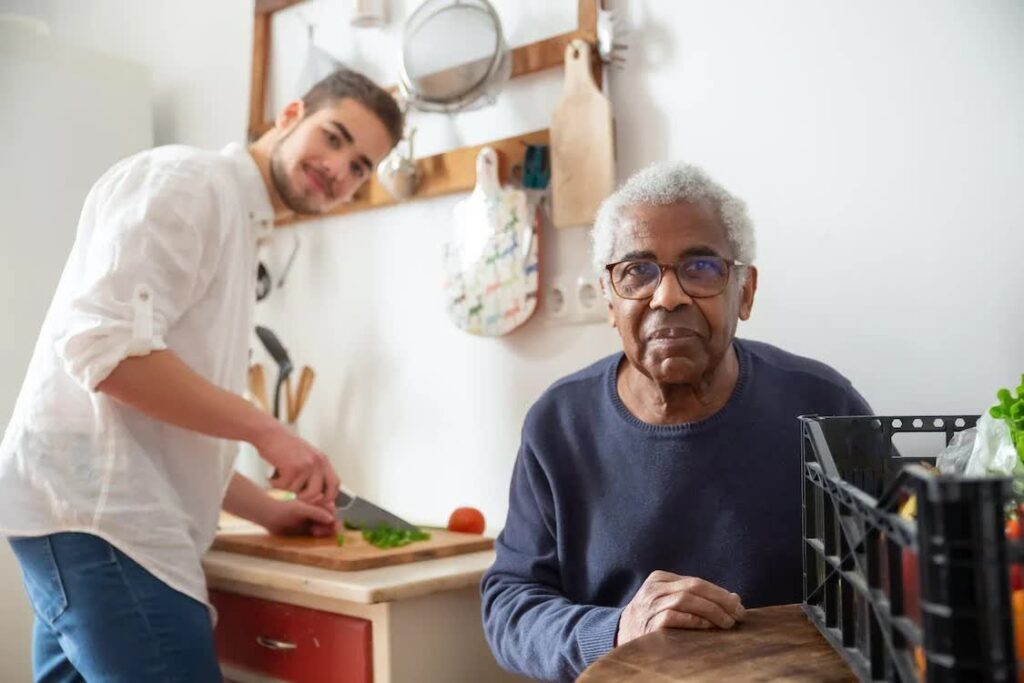Supporting a loved one in memory care is never easy, and at Westmont of La Mesa, we understand the emotional, practical, and relational challenges that emerge during this journey. Families often find themselves balancing new responsibilities while trying to stay connected, informed, and emotionally grounded. This is why supporting families is at the heart of everything we do.
In this guide, you’ll learn how to enhance communication, strengthen family dynamics, and stay meaningfully involved—even when care needs change. Through improved understanding, community connections, and the right emotional tools, you can create a healthier caregiving experience for everyone. For more information, visit us at Westmont of La Mesa.
Understanding the Challenges Families Face
When a loved one transitions into memory care, the emotional landscape shifts for everyone. You might experience guilt, uncertainty, or even relief—completely normal feelings. Recognizing these emotions is the first step in truly supporting families during a time of change.
Family dynamics may also evolve as roles shift and responsibilities increase. You may find yourself wondering how to support parents, siblings, or other relatives as they process the transition. Open, compassionate conversations help ease the strain, while shared involvement allows everyone to feel included in the care journey. You can further strengthen the experience by involving family members in care planning, ensuring that every voice is heard and valued.
As you move forward, remember that communicating with families—both within your household and with the care team—is essential for clarity and peace of mind.

The Importance of Education and Resources
Being prepared with information and tools can make caregiving significantly less overwhelming. Learning the fundamentals of memory care not only supports your loved one’s well-being but also empowers you emotionally and practically.
Understanding Memory Care Basics
Understanding dementia progression, communication techniques, and care strategies is vital for effectively supporting families. As cognitive abilities shift, learning how to help parents or relatives experiencing memory loss becomes even more critical.
Key areas to focus on include:
- Types of memory care programs
- Communication strategies that reassure and support
- Creating a daily structure
- Tools for managing stress and emotions
- Accessing help from community support organizations
These elements become the foundation for meaningful involvement. To learn how assisted living with memory care fosters a compassionate environment, explore more about resident-centered approaches.
Dive into the vibrant life our Westmont communities have to offer.Find Where You Belong
Accessing Support Resources
Finding reliable resources can lighten the emotional load and help you understand what’s ahead. Whether you attend a support group, read expert articles, or connect with other families, these networks give you strength, clarity, and a sense of belonging.
Support groups are an excellent example of formal support for parents and families navigating dementia. They help you share stories without judgment and offer insights you may not have considered. Online education—available through organizations such as the Alzheimer’s Association—provides valuable research-backed guidance.
At Westmont of Chico, families are encouraged to play an active role in their loved one’s daily experience—another powerful reminder of how communicating with families strengthens care outcomes.
Building Caregiving Skills
Developing caregiving strengths allows you to better handle emotional, behavioral, and practical challenges. These skills support both you and your loved one, offering peace of mind through improved confidence.
Helpful areas to grow include:
- Understanding dementia stages
- Clear communication and redirection
- Behavior and mood management techniques
- Environmental safety
- Emotional well-being and self-care
Engagement and connection also thrive when families stay involved. Learn how family engagement strengthens emotional bonds and enhances residents’ daily experiences.

Building a Supportive Community
Community plays a major role in supporting families through memory care. When families feel connected—emotionally, socially, and relationally—care becomes easier, more meaningful, and less isolating.
Encouraging Open Communication
Transparent, thoughtful communication is a cornerstone of successful memory care. By prioritizing communicating with families, you foster trust and encourage collaboration.
Effective strategies include:
- Actively listening with empathy
- Holding regular family meetings
- Creating a safe space for questions
- Encouraging shared decision-making
These practices strengthen family bonds and improve everyone’s confidence in their caregiving.
Providing Emotional Support
The journey can be emotionally challenging, and families often need reassurance and understanding. Practicing emotional support for parents, spouses, and siblings helps everyone feel supported and connected.
You can provide emotional support through:
| Approach | Benefit |
| Active listening | Helps families feel validated |
| Support groups | Builds shared understanding |
| Mindfulness | Reduces stress and anxiety |
| Regular check-ins | Encourages ongoing connection |
National resources such as the Family Caregiver Alliance are also excellent for education and emotional wellness tools.
Creating Social Connections
Meaningful relationships enhance well-being for both residents and families. Social connections reduce isolation, build confidence, and provide a stronger network of care.
Ways to stay connected include:
- Participating in family support groups
- Attending community events
- Joining group outings
- Engaging with other families online
- Encouraging resident participation in group activities
Each of these interactions reinforces that you’re not alone—an essential aspect of supporting families in memory care.
Effective Communication Strategies
Communication changes as cognitive abilities change. Responding with patience, clarity, and compassion ensures your loved one feels safe and valued.
Keep your language simple and your tone gentle. Use non-verbal cues—smiles, touch, eye contact—to express warmth. Active listening and slowing conversations help residents feel heard, while giving them time to respond, which encourages dignity and independence.
Coping With Emotional Stress
Caring for someone with memory loss involves emotional highs and lows. Self-care is essential. Practices such as mindfulness, breathing exercises, boundaries, and continued education help reduce stress. Using formal support for parents—such as support groups or counselor-led sessions—can also provide emotional grounding.
For stress-management techniques backed by experts, visit the National Institute on Aging.
Engaging With Memory Care Residents
Creative engagement—art, music, familiar scents, gentle crafts—helps spark memories and joy. Sensory experiences can stimulate conversation and improve mood, creating moments of connection that make caregiving rewarding.
Engagement doesn’t need to be elaborate; it simply needs to be meaningful.
Ready to Transform Your Experience? Call Us Today.
When you’re searching for guidance on how to support parents, strengthen communication, and build emotional resilience, Westmont of La Mesa is here for you. Our team walks alongside families every day, providing compassion, insight, and connection. If you’re ready to explore a community that truly prioritizes supporting families, call us at 619-369-9700.
We’re here to help you navigate this journey with confidence, clarity, and care. You can also schedule a tour here to experience Westmont of La Mesa firsthand.
Discover the level of care you or your family member requires. What Level of Care Do You Need?
Frequently Asked Questions
What is a supporting family?
Supporting family refers to offering emotional, physical, or practical help to loved ones as they navigate daily life or challenging situations. This support may include listening, helping with decision-making, or assisting with responsibilities. It also involves showing empathy and maintaining open communication to strengthen relationships. Overall, supporting family means being present and reliable when they need you most.
Why is it important to support families?
Supporting families is important because it builds resilience, trust, and stability within the household. When family members feel supported, they are more likely to cope effectively with stress, health challenges, or significant life transitions. It also promotes stronger emotional bonds and healthier communication. In many cases, family support improves overall well-being and fosters a sense of belonging.
What is an example of family support?
A typical example of family support is helping an aging parent manage medical appointments or daily tasks. It can also look like providing emotional encouragement during difficult times, such as job loss or illness. Offering childcare, preparing meals, or assisting with household responsibilities are additional forms of support. Each act, big or small, contributes to a stronger and more connected family unit.
How can we support our family?
Supporting family can begin with active listening and understanding each person’s needs. Offering practical help, such as transportation, errands, or daily caregiving, makes a meaningful difference. Emotional support—being patient, encouraging, and available—also plays a significant role. Strengthening family support often includes regular communication, shared responsibilities, and showing appreciation for one another.








